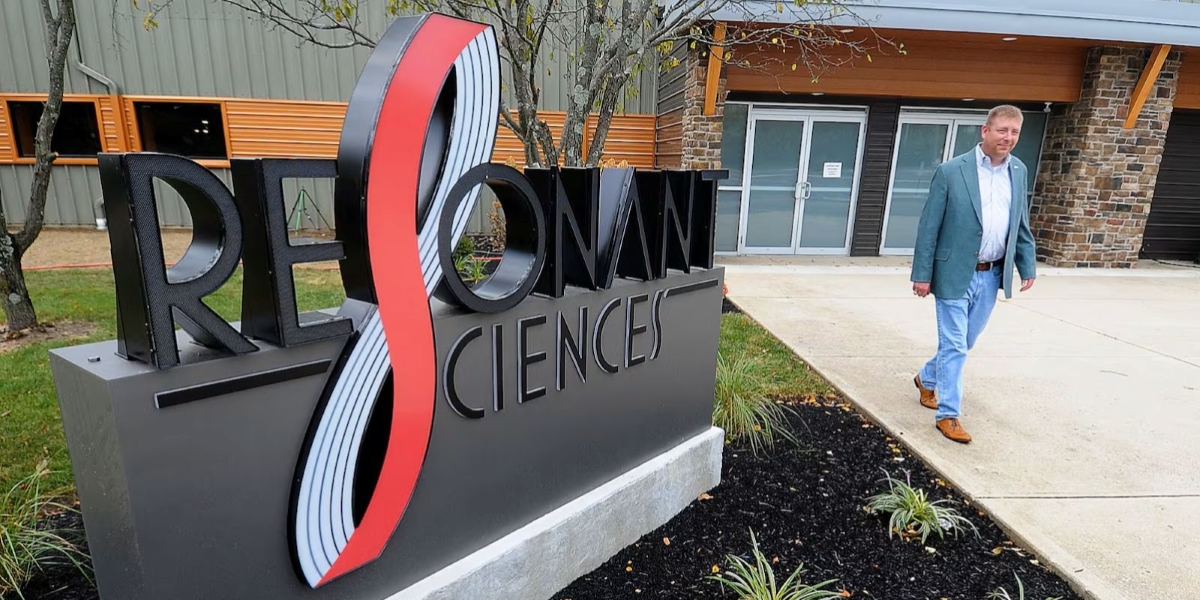By: Ethan Rogers
Corporations have always clung to rigid structures with fixed hours, mandatory office presence, and standardized roles, assuming that’s the only way a business can function. Employees are treated as interchangeable parts rather than individuals with unique strengths, responsibilities, and circumstances. But what if businesses broke free from these constraints? What if success wasn’t measured by time clocked in but by the quality of work produced?
One leader challenging that status quo is Katrina Starnes, founder of The Rise Group. A researcher turned entrepreneur—though she never planned to be either—Starnes has spent nearly 17 years building a company that values results over time spent, flexibility over micromanagement, and people over processes.
Like many young professionals, Starnes wasn’t sure where her career would take her. One thing she was sure of? “I will not go into research,” she used to joke. “I won’t be stuck in a lab coat.”
And yet, years later, she found herself deeply immersed in research, minus the lab coat. Then came the second twist: entrepreneurship. “I never had dreams of owning my own business. That wasn’t in the cards for me,” Starnes says. “But here I am, nearly two decades in, still running my own company.”
Her career began in advertising research, exploring the power of persuasion and the effectiveness of messaging. From there, she transitioned to corporate research, helping organizations consolidate and understand vast amounts of data. As she worked, she recognized a fundamental flaw in the way companies operated: they weren’t listening to their people.
Even in high school, Starnes had a knack for research and a passion for inclusion. As a person in charge of a youth board in Northern Illinois, she noticed that event organizers made decisions in a vacuum without seeking input from those they were supposed to serve. So, she developed her first survey: gathering feedback, identifying needs, and shaping future programming based on real insights.
That early experience foreshadowed her entire career. Whether working for corporations or running her own business, Starnes believed in data-driven decision-making and creating spaces where people’s voices mattered.
The tipping point came when she was expecting her first child. Despite a supportive boss, HR policies made it clear: if she wasn’t in the office full-time, her career was at risk. “I had a computer and an internet connection—why couldn’t I do it from anywhere?” she questioned herself.
Forced to choose between a rigid corporate structure and her own needs, Starnes made the terrifying decision to go out on her own. “I just wanted to do good work and be able to pay my mortgage,” she says. Within a month, her former boss called: “Hey, so when can you start as a consultant?” That call gave birth to The Rise Group, a research and consulting firm that has now thrived for 17 years, not by following traditional corporate structures but by rewriting the rules entirely.

From day one, Starnes built The Rise Group around one core belief: the work is the value, not the time spent on it.
“I don’t care if it takes an employee one hour, two hours, or five,” she explains. “What matters is the quality of the work. If I can let employees work from home, care for their kids, or set their own hours—but they’re still delivering excellent results—why should I care how long it takes?”
Even when COVID-19 turned the corporate world upside down, forcing businesses to embrace remote work, Starnes and her team barely noticed a change. “I made the joke that ‘when COVID hit, nothing changed for us,’” she says. “We’ve always been doing it. Our lives were already nuts, so we had to be flexible. While the rest of the world was panicking, I was just sitting here going, ‘This is just another Tuesday.’”
This approach isn’t just about convenience; it’s about unlocking true productivity and potential. By prioritizing results over rigid schedules, Starnes has attracted top-tier talent, even the ones who historically struggled to fit into the corporate mold. “I’m giving them the gift that no one was there to give me,” she says. “Because there was no one there.”
By focusing on results rather than rigid policies, Starnes has built a company that not only retains top talent but also delivers better outcomes for clients. Employees are empowered to work in ways that maximize their strengths, leading to higher engagement, creativity, and productivity.
Her approach challenges the deeply ingrained inefficiencies of the corporate world, where leaders are held accountable for workplace culture, flexibility, and inclusivity. “The way we work should evolve with society,” Starnes argues. “With all this technological advancement, why aren’t we more free? Why do we still cling to outdated workplace structures that serve no one?”
Her success is a powerful rebuttal to those who claim flexible work environments aren’t viable. “We need more entrepreneurs who care—about their employees, their clients, and their communities,” Starnes says. “When businesses find that perfect blend, we don’t just see companies thrive. We see economies and society as a whole thrive.”
Published by Joseph T.









